Athens Quotes
Quotes tagged as "athens"
Showing 1-30 of 38

“Running out the anchor line, the pirates babbled to one another, and in the tangle of their barbaric language, Aspasia listened for one word—Athens. It lit up the darkness in her mind, like the single glint her eyes fixed on above the distant gray-green hills.”
― Pericles and Aspasia: A Story of Ancient Greece
― Pericles and Aspasia: A Story of Ancient Greece

“Aspasia had herself fallen into very good fortune. So good that at the age of twenty years, she’d probably used up the whole life’s portion of good luck that Tyche had allotted her. To make good fortune last—for herself and the child in her womb—would be up to her.”
― Pericles and Aspasia: A Story of Ancient Greece
― Pericles and Aspasia: A Story of Ancient Greece

“1. Bangladesh.... In 1971 ... Kissinger overrode all advice in order to support the Pakistani generals in both their civilian massacre policy in East Bengal and their armed attack on India from West Pakistan.... This led to a moral and political catastrophe the effects of which are still sorely felt. Kissinger’s undisclosed reason for the ‘tilt’ was the supposed but never materialised ‘brokerage’ offered by the dictator Yahya Khan in the course of secret diplomacy between Nixon and China.... Of the new state of Bangladesh, Kissinger remarked coldly that it was ‘a basket case’ before turning his unsolicited expertise elsewhere.
2. Chile.... Kissinger had direct personal knowledge of the CIA’s plan to kidnap and murder General René Schneider, the head of the Chilean Armed Forces ... who refused to countenance military intervention in politics. In his hatred for the Allende Government, Kissinger even outdid Richard Helms ... who warned him that a coup in such a stable democracy would be hard to procure. The murder of Schneider nonetheless went ahead, at Kissinger’s urging and with American financing, just between Allende’s election and his confirmation.... This was one of the relatively few times that Mr Kissinger (his success in getting people to call him ‘Doctor’ is greater than that of most PhDs) involved himself in the assassination of a single named individual rather than the slaughter of anonymous thousands. His jocular remark on this occasion—‘I don’t see why we have to let a country go Marxist just because its people are irresponsible’—suggests he may have been having the best of times....
3. Cyprus.... Kissinger approved of the preparations by Greek Cypriot fascists for the murder of President Makarios, and sanctioned the coup which tried to extend the rule of the Athens junta (a favoured client of his) to the island. When despite great waste of life this coup failed in its objective, which was also Kissinger’s, of enforced partition, Kissinger promiscuously switched sides to support an even bloodier intervention by Turkey. Thomas Boyatt ... went to Kissinger in advance of the anti-Makarios putsch and warned him that it could lead to a civil war. ‘Spare me the civics lecture,’ replied Kissinger, who as you can readily see had an aphorism for all occasions.
4. Kurdistan. Having endorsed the covert policy of supporting a Kurdish revolt in northern Iraq between 1974 and 1975, with ‘deniable’ assistance also provided by Israel and the Shah of Iran, Kissinger made it plain to his subordinates that the Kurds were not to be allowed to win, but were to be employed for their nuisance value alone. They were not to be told that this was the case, but soon found out when the Shah and Saddam Hussein composed their differences, and American aid to Kurdistan was cut off. Hardened CIA hands went to Kissinger ... for an aid programme for the many thousands of Kurdish refugees who were thus abruptly created.... The apercu of the day was: ‘foreign policy should not he confused with missionary work.’ Saddam Hussein heartily concurred.
5. East Timor. The day after Kissinger left Djakarta in 1975, the Armed Forces of Indonesia employed American weapons to invade and subjugate the independent former Portuguese colony of East Timor. Isaacson gives a figure of 100,000 deaths resulting from the occupation, or one-seventh of the population, and there are good judges who put this estimate on the low side. Kissinger was furious when news of his own collusion was leaked, because as well as breaking international law the Indonesians were also violating an agreement with the United States.... Monroe Leigh ... pointed out this awkward latter fact. Kissinger snapped: ‘The Israelis when they go into Lebanon—when was the last time we protested that?’ A good question, even if it did not and does not lie especially well in his mouth.
It goes on and on and on until one cannot eat enough to vomit enough.”
―
2. Chile.... Kissinger had direct personal knowledge of the CIA’s plan to kidnap and murder General René Schneider, the head of the Chilean Armed Forces ... who refused to countenance military intervention in politics. In his hatred for the Allende Government, Kissinger even outdid Richard Helms ... who warned him that a coup in such a stable democracy would be hard to procure. The murder of Schneider nonetheless went ahead, at Kissinger’s urging and with American financing, just between Allende’s election and his confirmation.... This was one of the relatively few times that Mr Kissinger (his success in getting people to call him ‘Doctor’ is greater than that of most PhDs) involved himself in the assassination of a single named individual rather than the slaughter of anonymous thousands. His jocular remark on this occasion—‘I don’t see why we have to let a country go Marxist just because its people are irresponsible’—suggests he may have been having the best of times....
3. Cyprus.... Kissinger approved of the preparations by Greek Cypriot fascists for the murder of President Makarios, and sanctioned the coup which tried to extend the rule of the Athens junta (a favoured client of his) to the island. When despite great waste of life this coup failed in its objective, which was also Kissinger’s, of enforced partition, Kissinger promiscuously switched sides to support an even bloodier intervention by Turkey. Thomas Boyatt ... went to Kissinger in advance of the anti-Makarios putsch and warned him that it could lead to a civil war. ‘Spare me the civics lecture,’ replied Kissinger, who as you can readily see had an aphorism for all occasions.
4. Kurdistan. Having endorsed the covert policy of supporting a Kurdish revolt in northern Iraq between 1974 and 1975, with ‘deniable’ assistance also provided by Israel and the Shah of Iran, Kissinger made it plain to his subordinates that the Kurds were not to be allowed to win, but were to be employed for their nuisance value alone. They were not to be told that this was the case, but soon found out when the Shah and Saddam Hussein composed their differences, and American aid to Kurdistan was cut off. Hardened CIA hands went to Kissinger ... for an aid programme for the many thousands of Kurdish refugees who were thus abruptly created.... The apercu of the day was: ‘foreign policy should not he confused with missionary work.’ Saddam Hussein heartily concurred.
5. East Timor. The day after Kissinger left Djakarta in 1975, the Armed Forces of Indonesia employed American weapons to invade and subjugate the independent former Portuguese colony of East Timor. Isaacson gives a figure of 100,000 deaths resulting from the occupation, or one-seventh of the population, and there are good judges who put this estimate on the low side. Kissinger was furious when news of his own collusion was leaked, because as well as breaking international law the Indonesians were also violating an agreement with the United States.... Monroe Leigh ... pointed out this awkward latter fact. Kissinger snapped: ‘The Israelis when they go into Lebanon—when was the last time we protested that?’ A good question, even if it did not and does not lie especially well in his mouth.
It goes on and on and on until one cannot eat enough to vomit enough.”
―

“The male orientation of classical Athens was inseparable from its genius. Athens became great not despite but because of its misogyny.”
―
―
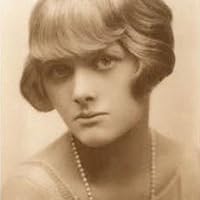
“I want to see the Parthenon by moonlight.'
I had my way. They floodlight it now, to great advantage I am told, but it was not so then, and since it was late in the year there were few tourists. My companions were all intelligent men, including my own husband, and they had the sense to stay mute. I suppose, being a woman, I confuse beauty with sentiment, but, as I looked on the Parthenon for the first time in my life, I found myself crying. It had never happened to me before. Your sunset weepers I despise. It was not full moon, or anywhere near it. The half circle put me in mind of the labrys, the Cretan double axe, and the pillars were the most ghostly in consequence. What a shock for the modern aesthete, I thought when my crying was done, if he could see the ruddy glow of colour, the painted eyes, the garish lips, the orange-reds and blues that were there once, and Athene herself a giantess on her pedestal touched by the rising sun. Even in those distant times the exigencies of a state religion had brought their own traffic, the buying and selling of doves, of trinkets: to find himself, a man had to go to the woods, to the hills.
"Come on," said Stephen. "It's beautiful and stark, if you like, but so is St. Pancras station at 4 A.M. It depends on your association of ideas."
We crammed into Burns's small car, and went back to our hotel. ("The Chamois")”
― Echoes from the Macabre: Selected Stories
I had my way. They floodlight it now, to great advantage I am told, but it was not so then, and since it was late in the year there were few tourists. My companions were all intelligent men, including my own husband, and they had the sense to stay mute. I suppose, being a woman, I confuse beauty with sentiment, but, as I looked on the Parthenon for the first time in my life, I found myself crying. It had never happened to me before. Your sunset weepers I despise. It was not full moon, or anywhere near it. The half circle put me in mind of the labrys, the Cretan double axe, and the pillars were the most ghostly in consequence. What a shock for the modern aesthete, I thought when my crying was done, if he could see the ruddy glow of colour, the painted eyes, the garish lips, the orange-reds and blues that were there once, and Athene herself a giantess on her pedestal touched by the rising sun. Even in those distant times the exigencies of a state religion had brought their own traffic, the buying and selling of doves, of trinkets: to find himself, a man had to go to the woods, to the hills.
"Come on," said Stephen. "It's beautiful and stark, if you like, but so is St. Pancras station at 4 A.M. It depends on your association of ideas."
We crammed into Burns's small car, and went back to our hotel. ("The Chamois")”
― Echoes from the Macabre: Selected Stories

“Periclean Greeks employed the term idiotis, without any connotation of stupidity or subnormality, to mean simply 'a person indifferent to public affairs.' Obviously, there is something wanting in the apolitical personality. But we have also come to suspect the idiocy of politicization—of the professional pol and power broker. The two idiocies make a perfect match, with the apathy of the first permitting the depredations of the second.”
― Prepared for the Worst: Selected Essays and Minority Reports
― Prepared for the Worst: Selected Essays and Minority Reports
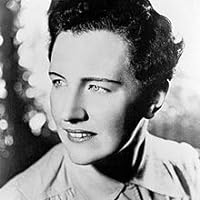
“Men are not born equal in themselves, so I think it beneath a man to postulate that they are. If I thought myself as good as Sokrates I should be a fool; and if, not really believing it, I asked you to make me happy by assuring me of it, you would rightly despise me. So why should I insult my fellow-citizens by treating them as fools and cowards? A man who thinks himself as good as everyone else will be at no pains to grow better. On the other hand, I might think myself as good as Sokrates, and even persuade other fools to agree with me; but under a democracy, Sokrates is there in the Agora to prove me wrong. I want a city where I can find my equals and respect my betters, whoever they are; and where no one can tell me to swallow a lie because it is expedient, or some other man's will.”
― The Last of the Wine
― The Last of the Wine
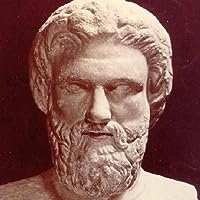
“better not bring up a lion inside your city,
But if you must, then humour all his moods.”
― The Frogs
But if you must, then humour all his moods.”
― The Frogs

“The causes which ruined the Republic of Athens illustrate the connection of ethics with politics rather than the vices inherent to democracy. A State which has only 30,000 full citizens in a population of 500,000, and is governed, practically, by about 3000 people at a public meeting, is scarcely democratic. The short triumph of Athenian liberty, and its quick decline, belong to an age which possessed no fixed standard of right and wrong. An unparalleled activity of intellect was shaking the credit of the gods, and the gods were the givers of the law. It was a very short step from the suspicion of Protagoras, that there were no gods, to the assertion of Critias that there is no sanction for laws. If nothing was certain in theology, there was no certainty in ethics and no moral obligation. The will of man, not the will of God, was the rule of life, and every man and body of men had the right to do what they had the means of doing. Tyranny was no wrong, and it was hypocrisy to deny oneself the enjoyment it affords. The doctrine of the Sophists gave no limits to power and no security to freedom; it inspired that cry of the Athenians, that they must not be hindered from doing what they pleased, and the speeches of men like Athenagoras and Euphemus, that the democracy may punish men who have done no wrong, and that nothing that is profitable is amiss. And Socrates perished by the reaction which they provoked.”
― The History of Freedom, and Other Essays
― The History of Freedom, and Other Essays

“That's why the city is named Athens, after her, when it could have been named something cool like Poseidonopolis.”
― Percy Jackson's Greek Gods
― Percy Jackson's Greek Gods

“Everything we know and believe about deity and divinity nowadays, is a direct origin of old civilizations. Everybody, Greeks, Saxons, Assyrians and Soumerians, all imitate the ancient ways of the first tribes of central Africa (Mason father to his son in "The Omniconstant”
―
―
“In the midst of the heavy, hot fragrance of summer, and of the clean salty smell of the sea, there was the odor of wounded men, a sickly odor of blood and antiseptics which marked the zone of every military hospital. All Athens quickly took on that odor, as the wounded Greek soldiers were moved out of hospitals and piled into empty warehouses to make way for German wounded. Now every church, every empty lot, every school building in Athens is full of wounded, and on the pathways of Zappion, the park in the heart of Athens, bandaged men in makeshift wheel chairs are to be seen wherever one walks. Zappion is a profusion of flowers, heavy-scented luxurious flowers; but even the flower fragrance is not as strong as that of blood.”
― Miracles in Hellas: The Greeks Fight On
― Miracles in Hellas: The Greeks Fight On

“Athens, while remaining nominally independent, no longer commanded its lifelines or its fate. Just as it had invented many Western institutions and intellectual and artistic endeavors, so did it pioneer a less glorious tradition. In the centuries following the Peloponnesian war, Athens became the first in a long line of senescent Western empires to suffer the ignominious transformation from world power to open-air theme park, famous only for its arts, its architecture, its schools, and its past.”
― A Splendid Exchange: How Trade Shaped the World
― A Splendid Exchange: How Trade Shaped the World

“Must we forsake the love of excellence, then, till every citizen feels it alike? I did not fight, Anytos, to be crowned where I have not run; but for a City where I can know who my equals really are, and my betters, to do them honour; where a man’s daily life is his own business; and where no one will force a lie on me because it is expedient, or some other man’s will.” The words seemed, as I spoke, to be my own thoughts that I owed to no one, only to some memory in my soul; but when I looked beyond the Stadium, to where they were kindling the lights on the High City in the falling dark, I saw the lamps of Samos shine through a doorway, and the wine-cup standing on the table of scoured wood. Then the pain of loss leaped out on me, like a knife in the night when one has been on one’s guard all day. The world grew hollow, a place of shadows; yet none would hold out the cup of Lethe to let me drink.”
― The Last of the Wine
― The Last of the Wine
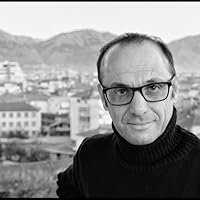
“Out past the pimple of Lycabettus Hill the concrete apartment blocks in shades of beige, grey and white glinted in the morning sunlight, as if shards of broken glass had been strewn in among them.”
― The Migrant
― The Migrant

“Love, he said, is not a god, for a god cannot want anything; but one of those great spirits who are messengers between gods and men. He does not visit fools, who are content with their low condition, but those who aware of their own need and desire, by embracing the beautiful and good, to beget goodness and beauty; for creation is man’s immortality and brings him nearest to the gods. All creatures, he said, cherish the children of their flesh; yet the noblest progeny of love are wisdom and glorious deeds, for mortal children die, but these live forever; and these are begotten not of the body but the soul. Mortal passion sinks us in mortal pleasure, so that the wings of the soul grow weak; and such lovers may rise to the good indeed, but not to the very best. But the winged soul rises from love to love, from the beautiful that is born and dies, to beauty is only a moving shadow flung upon a wall.”
― The Last of the Wine
― The Last of the Wine

“It is said that when Darius first learned what had happened he gave no thought to the Ionians, knowing full well that they would be made to pay for their revolt; but he asked who the Athenians were, and then, on being told, called for his bow. Taking it up, he set an arrow on the string, shot it into the air, and said, “Grant, O Zeus, that I may punish the Athenians.” Then he ordered one of his servants every day, when his dinner was served, to repeat to him three times the words, “Master, remember the Athenians.”
― Histories
― Histories

“Helena: O weary night, O long and tedious night,
Abate thy hours! Shine comforts from the east,
That I may back to Athens by daylight,
From these that my poor company detest:
And sleep, that sometimes shuts up sorrow's eye,
Steal me awhile from mine own company.”
― A Midsummer Night’s Dream
Abate thy hours! Shine comforts from the east,
That I may back to Athens by daylight,
From these that my poor company detest:
And sleep, that sometimes shuts up sorrow's eye,
Steal me awhile from mine own company.”
― A Midsummer Night’s Dream

“Athènes devint à partir de 450 avant Jésus-Christ la capitale culturelle du monde grec. La philosophie aussi prit un nouveau tournant.
Les philosophes de la nature étaient avant tout des hommes de science qui s'intéressaient à l'analyse physique du monde et, à ce titre, ils tiennent une place importante dans l'histoire de la science. Mais, à Athènes, l'étude de la nature fut supplantée par celle de l'homme et sa place dans la société.
Petit à petit, une démocratie avec des assemblées du peuple et des juges populaires vit le jour. Une condition sine qua non pour l'établissement de la démocratie était que le peuple fût assez éclairé pour pouvoir participer au processus démocratique. Qu'une jeune démocratie exige une certaine éducation du peuple, nous l'avons bien vu de nos jours.”
― Sophie’s World
Les philosophes de la nature étaient avant tout des hommes de science qui s'intéressaient à l'analyse physique du monde et, à ce titre, ils tiennent une place importante dans l'histoire de la science. Mais, à Athènes, l'étude de la nature fut supplantée par celle de l'homme et sa place dans la société.
Petit à petit, une démocratie avec des assemblées du peuple et des juges populaires vit le jour. Une condition sine qua non pour l'établissement de la démocratie était que le peuple fût assez éclairé pour pouvoir participer au processus démocratique. Qu'une jeune démocratie exige une certaine éducation du peuple, nous l'avons bien vu de nos jours.”
― Sophie’s World
“Athens and America are not the same. But lessons applying to one may apply to the other. Once men break with tradition, venturing upon a colossal political experiment, they lose the ability to navigate. They lose their sense of proportion, their sense of right and wrong. It is always dangerous to mistake where you are, to lack the means for recognizing error, to believe that immediate success – or successes earned to date – indicate some newfound path to collective happiness.”
―
―

“Fyssas’s murder was a turning point for the broad anti-fascist left in Greece. The Golden Dawn had always met dedicated resistance to its violent attacks on migrants, leftists, critics, and journalists, but the fatal stabbing of a left-wing rapper in public was kerosene to the anti-fascist fire that had long burned in many Greeks’ hearts.”
― Alerta! Alerta!: Snapshots of Europe's Anti-fascist Struggle
― Alerta! Alerta!: Snapshots of Europe's Anti-fascist Struggle

“During a general assembly later that night, an activist led an Afghan refugee family into the squat’s reception area. They were fatigued and searching for a place to stay. Their bags were weatherworn, their clothes disheveled, and their faces drained. From Afghanistan, the father, mother, and their two daughters made the journey by land and sea, crossing mountains, rivers, borders, and fields. With the help of a translator, Marcos explained the politics of Notara. The family said they understood and wanted to stay until they could find their own accommodation. Macros flipped open a notebook and replied, ‘Let’s see if we can find an open room for you.”
― Alerta! Alerta!: Snapshots of Europe's Anti-fascist Struggle
― Alerta! Alerta!: Snapshots of Europe's Anti-fascist Struggle

“Jude leant on the hotel balcony railing looking down over the rooftops of central Athens. Below him was a dense plantation of TV aerials, and a building with air-con units slung on the side like finger holds up a climbing wall.”
― The Migrant
― The Migrant

“Just below him Mars Hill looked like a shiny, rose-tinted
walnut, and the words from the book of Acts that Paul the
apostle had spoken there ran through his mind.
'I see that in every way you Athenians are very
religious. For as I walked through your city and
looked at the places where you worship, I found
an altar on which is written, ‘To an Unknown
God.’ That which you worship, then, even
though you do not know it, is what I now
proclaim to you.”
― The Migrant
walnut, and the words from the book of Acts that Paul the
apostle had spoken there ran through his mind.
'I see that in every way you Athenians are very
religious. For as I walked through your city and
looked at the places where you worship, I found
an altar on which is written, ‘To an Unknown
God.’ That which you worship, then, even
though you do not know it, is what I now
proclaim to you.”
― The Migrant

“South of Larissa the landscape began to change. Jude watched an irrigation machine like a giant stick insect creeping over a field, and a tractor racing across another, raking up a dust cloud behind in a brown jet stream.”
― The Migrant
― The Migrant

“I turned anti-American. I joined the European chorus of disdain for America. And because, like many other Filipinos, including practically every Philippine president from the time of Emilio Aguinaldo, my father was a true disciple of the Great American Dream, I turned against him, too, as I thumbed my nose at the Americanization of the world.”
― Manila Was A Long Time Ago - Official
― Manila Was A Long Time Ago - Official

“Here in Greece, I am now surrounded by ancient memories in slabs of stone, cold and lifeless and enduring, but where I grew up, my memories could have been warm as a toast, fluffy as freshly baked muffins, and as homey as the smell of bread wafting from the ovens.”
― Manila Was A Long Time Ago - Official
― Manila Was A Long Time Ago - Official
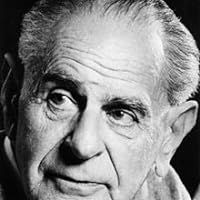
“It will for ever remain one of the greatest triumphs of Athenian democracy that it treated slaves humanely, and that in spite of the inhuman propaganda of philosophers like Plato himself and Aristotle it came, as he witnesses, very close to abolishing slavery.”
― The Open Society and Its Enemies - Volume One: The Spell of Plato
― The Open Society and Its Enemies - Volume One: The Spell of Plato

“Not only poetry but also music in the ordinary sense of the term are to be controlled by a rigid censorship, and both are to be devoted entirely to strengthening the stability of the state by making the young more conscious of class discipline, and thus more ready to serve class interests. Plato even forgets that it is the function of music to make the young more gentle, for he demands such forms of music as will make them braver, i.e. fiercer. (Considering that Plato was an Athenian, his arguments concerning music proper appear to me almost incredible in their superstitious intolerance, especially if compared with a more enlightened contemporary criticism. But even now he has many musicians on his side, possibly because they are flattered by his high opinion of the importance of music, i.e. of its political power. The same is true of educationists, and even more of philosophers, since Plato demands that they should rule.)
The political principle that determines the education of the soul, namely, the preservation of the stability of the state, determines also that of the body. The aim is simply that of Sparta.”
― The Open Society and Its Enemies - Volume One: The Spell of Plato
The political principle that determines the education of the soul, namely, the preservation of the stability of the state, determines also that of the body. The aim is simply that of Sparta.”
― The Open Society and Its Enemies - Volume One: The Spell of Plato

“Do you not want to rule the world, Nicator Seleucus? Do you not want your name whispered from Athens to the banks of the Indus? Hear the bards singing your fame for posterity and the cities minting your coins? The armies carrying your banners and the warriors piercing the clouds with your name? Do you not want all of that, Seleucus?”
― Doctor Who: Farewell, Great Macedon
― Doctor Who: Farewell, Great Macedon
All Quotes
|
My Quotes
|
Add A Quote
Browse By Tag
- Love Quotes 98.5k
- Life Quotes 77k
- Inspirational Quotes 73.5k
- Humor Quotes 44k
- Philosophy Quotes 30k
- Inspirational Quotes Quotes 27.5k
- God Quotes 26.5k
- Truth Quotes 24k
- Wisdom Quotes 24k
- Romance Quotes 23.5k
- Poetry Quotes 22.5k
- Death Quotes 20k
- Life Lessons Quotes 20k
- Happiness Quotes 19k
- Quotes Quotes 18k
- Faith Quotes 18k
- Hope Quotes 18k
- Inspiration Quotes 17k
- Spirituality Quotes 15.5k
- Religion Quotes 15k
- Motivational Quotes 15k
- Writing Quotes 15k
- Relationships Quotes 14.5k
- Life Quotes Quotes 14.5k
- Love Quotes Quotes 14.5k
- Success Quotes 13.5k
- Time Quotes 12.5k
- Motivation Quotes 12.5k
- Science Quotes 12k
- Motivational Quotes Quotes 11.5k

